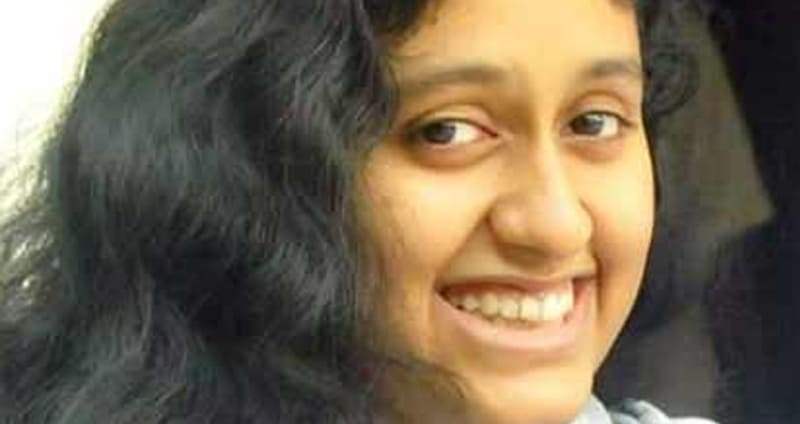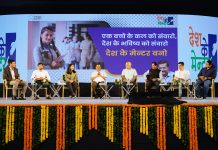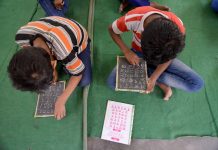A deep sense of anguish, sadness and awkwardness surrounds me as I attempt to put down my thoughts on the increasing polarization of views, ideologies and perceptions around social issues, especially the ones which are mired in controversies and have deep historico-political roots. Anguish and sadness, because teaching which is my profession is paradoxically celebrated and maligned at the same time and so are the teachers! Awkward, because anything I say here might get misconstrued and label me as being socially insensitive. Yet, I will attempt to explain my views.
We often look at our social reality in terms of binaries – good vs bad, traditional vs modern, conventional vs progressive etc. leading to complete isolation of one from another. Its appeal lies in the fact that it provides us with a lens to discriminate between what is socially desirable and what is not. These categories are sometimes conceptualized in a problem vs solution mode. For example, if Board examinations are seen as undesirable, then Continuous and Comprehensive Evaluation is seen as desirable/as a solution to mitigate the ills associated with the former. Similarly if a didactic classroom with teacher delivering a monologue is seen as ‘poor pedagogy’, then a classroom in which teacher and students have equal autonomy and freedom is seen as ‘good pedagogy’. However, one of the implications of this myopic and polarized view of looking at the world is that it tries to establish a complete division between ideas that may not be so apart from each other. Binaries also create sharp, impermeable boundaries around people and their worlds placing them in categories opposed to one another such as, fairy vs witch, adult vs child, upper caste vs Dalit, man vs woman and teacher vs student.
There is ample research in Sociology of Education which shows how schools, classrooms, curricular resources, pedagogic practices and even assessment policies become sites where social inequalities are reproduced. Teachers are found to be equally responsible for perpetuating inequalities. Having said that, every case of unnatural death in institutions such as schools or colleges, may not necessarily be perceived as the outcome of discrimination on part of the ‘other’. Fatima Lateef’s suicide in IIT, Madras is one such unfortunate incident wherein the ‘other’ is a male, Hindu teacher. It is job of the police and judiciary to ascertain or absolve the accused of their guilt. However, it may perhaps be naïve to simplify the issue as one of ‘religious fundamentalism’ or caste domination. Institutions of learning not just mirror the ugly reality of a fragmented society but are limited in number leading to a scramble for those few seats among students from similar or varying backgrounds.
It would be completely out of place if I try and examine the cause of Fatima’s untimely death. What I gather from media reports is that she was an extremely bright and sensitive student. Needless to say, one needs to find reasons for her suicide, which maybe far more complex than identifying a lone culprit. At the same time, it is important to ensure that her death does not signal the message that suicide is a viable option to fight social injustice.
Allegations are being levelled against teachers who taught her and gave her low marks. The charges fit in with the dominant narrative which regards all teachers as villains and equates all accusations as verdicts. Educational discourse and policies place teachers at the centre but as objects of reform. The narrative around school education revolves around the absentee, inefficient, unaccountable teacher who needs to be reigned in, monitored and punished for any wrong doing. In institutions of higher learning also, this mistrust is evident as the teacher is constantly required to maintain records, gather evidence and accumulate points for an extended tenure, increment or promotion.
Related to this is the problem of viewing all teachers as oppressors and all students as victims. Violence is perceived to be unilaterally directed by teachers towards students. One hardly ever hears of a young female teacher being harassed by adolescent boys or a Dalit teacher’s accent, way of dressing or even competence being made fun of by students from privileged backgrounds. These remain individual untold stories of alienation, rejection and discrimination experienced by teachers.
Added to this is the fact that teachers are not a homogenous category. Their multiple social locations (caste, ethnicity, gender and religion) intersect with hierarchical locations of where they work (regional college or central university, municipal school or Kendriya Vidyalaya) and even service conditions and tenure of their work (contract vs permanent position) to create interesting dynamics. For example, it may not be unreasonable to presume that a male, upper-caste, upper-class teacher has more power as compared to a female, Dalit and poor teacher. Same perhaps cannot be said about a rich Dalit in relation to a poor upper-caste teacher.
While there is absolutely no denying the fact that despite 70 years of our Independence with a sound constitutional framework guiding us, social discrimination, prejudice and outright oppression of the socially weak is still quite rampant and cannot be dismissed. However, in the war of binaries, should any allegation against presumably dominant social category colour the perception, pre-judge the accused and leave them at the mercy of the ubiquitous media?
One also needs to acknowledge that there are thousands of teachers who convert their classes into genuine democratic spaces, respect the agencies of students coming from different social backgrounds and try and engage in a collective meaning-making exercise. They dream of making their societies better places to live in and conscientiously work towards that. In the present circumstances of instant trial by media, it is highly probable that ‘fear’ will become the dominant thread guiding teachers’ beliefs, values and practices. One needs to go beyond the binary of oppressor vs oppressed and either dismissing all complaints from socially disempowered or pre-judging the offence and equating all complaints with judgments. Both are equally dangerous. The Constitution needs to be our guiding force at all times and any violation of its principles should be discouraged and dealt with strictly.
Disha Nawani is Professor & Dean at School of Education, Tata Institute of Social Sciences, Mumbai.











